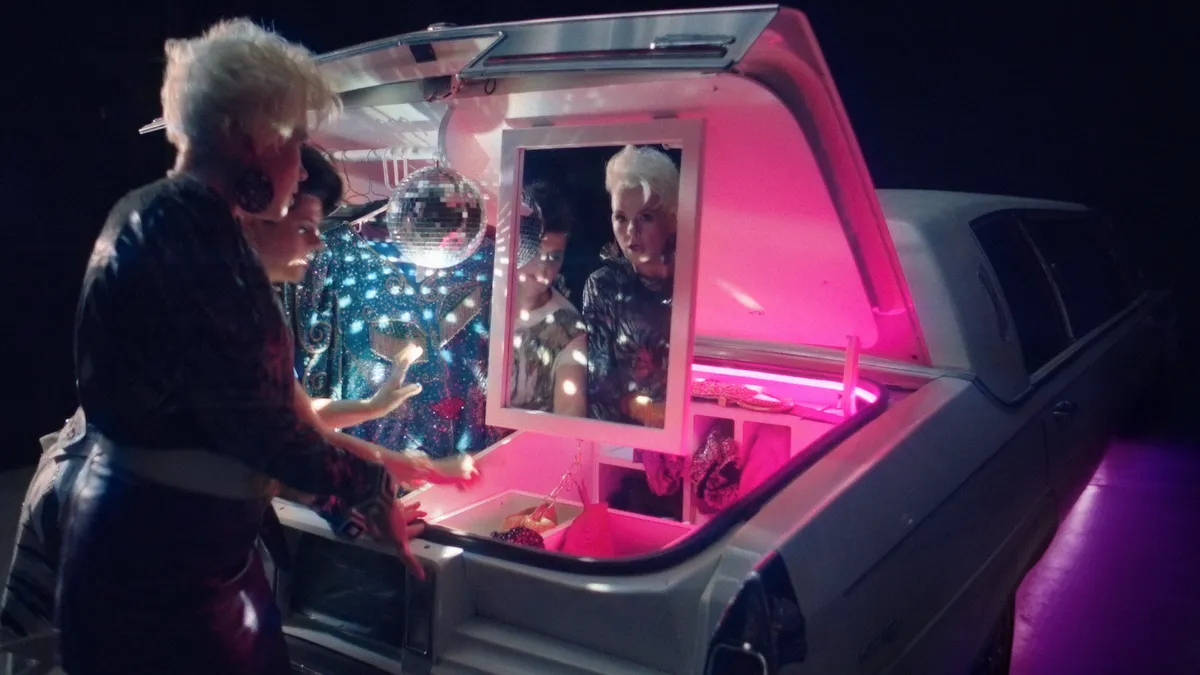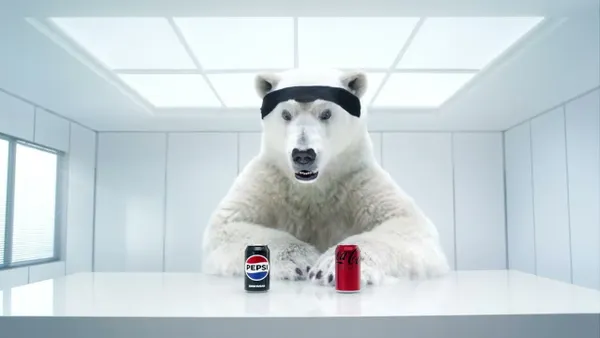Brief:
- To promote the premiere of season two of "GLOW" on Friday, Netflix is teaming up with ride-hailing app Lyft to provide fans with rides in a "glammed-up" vintage stretch limousine, complete with "80's duds, jams, and a GLOW-bot full of surprises," according to a statement provided to Mobile Marketer.
- The limo will be in Los Angeles on June 29 and Las Vegas on June 30. Lyft riders can input the code GLOW2 in the app to unlock "GLOW Mode" and request a free ride for up to five people.
- Netflix is also throwing an all-day launch party on Muscle Beach in Los Angeles this weekend that will feature fitness classes, giveaways, surprise activities and cast appearances.
Insight:
Netflix continues to explore nontraditional marketing strategies to promote its original shows. Teaming with Lyft for a "GLOW"-themed limousine is the type of memorable experience that can help brands connect with younger consumers who often don't respond to traditional ads. This is Netflix's second partnership with Lyft after a 2017 campaign that promoted the second season of "Stranger Things" with a spooky themed ride.
As it did with "Stranger Things," Netflix's "GLOW" push features other nontraditional partnerships, including a line of '80s-inspired Reebok sneakers and a Tuesday cast appearance on WWE's SmackDown Live program. Meanwhile, as traditional advertising shrinks, brands seeking higher-value product placements are increasingly teaming with Netflix to tap into its global audience of 125 million.
Netflix's success is increasingly due to an original programming library that includes shows like "GLOW," "Stranger Things" and "Orange Is The New Black" and will allow it to compete as its rivals plan to launch their own subscription-based streaming services. As of press time, Netflix's market cap sits at $164.34 billion, putting it ahead of competitors Disney and Comcast, with a Bank of America Merrill Lynch analyst saying in a note to clients on June 27 that the company can "become the dominant streaming player in virtually all markets given its content scale, despite varying levels of competition, regulation, and economic conditions in each market."













